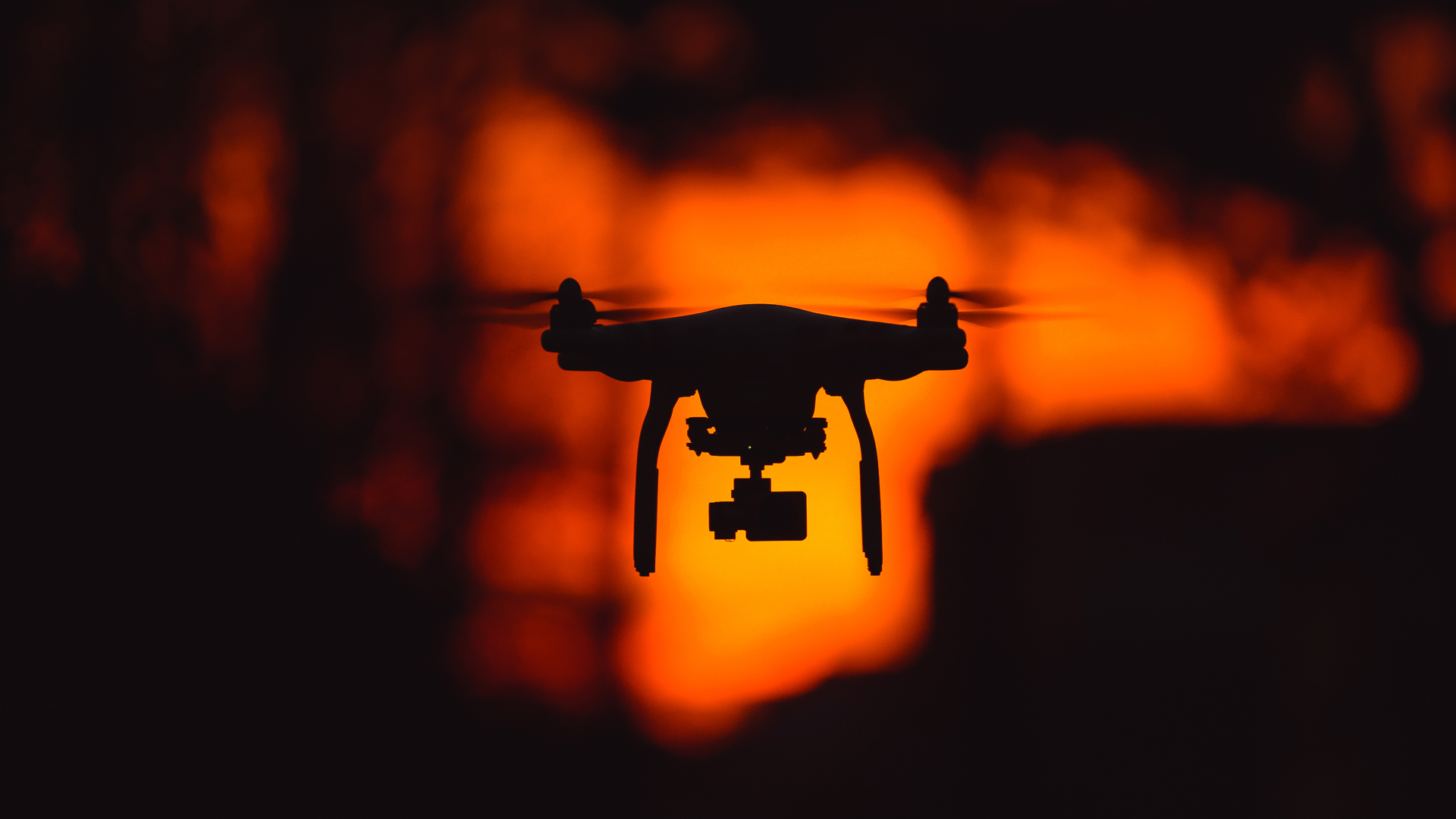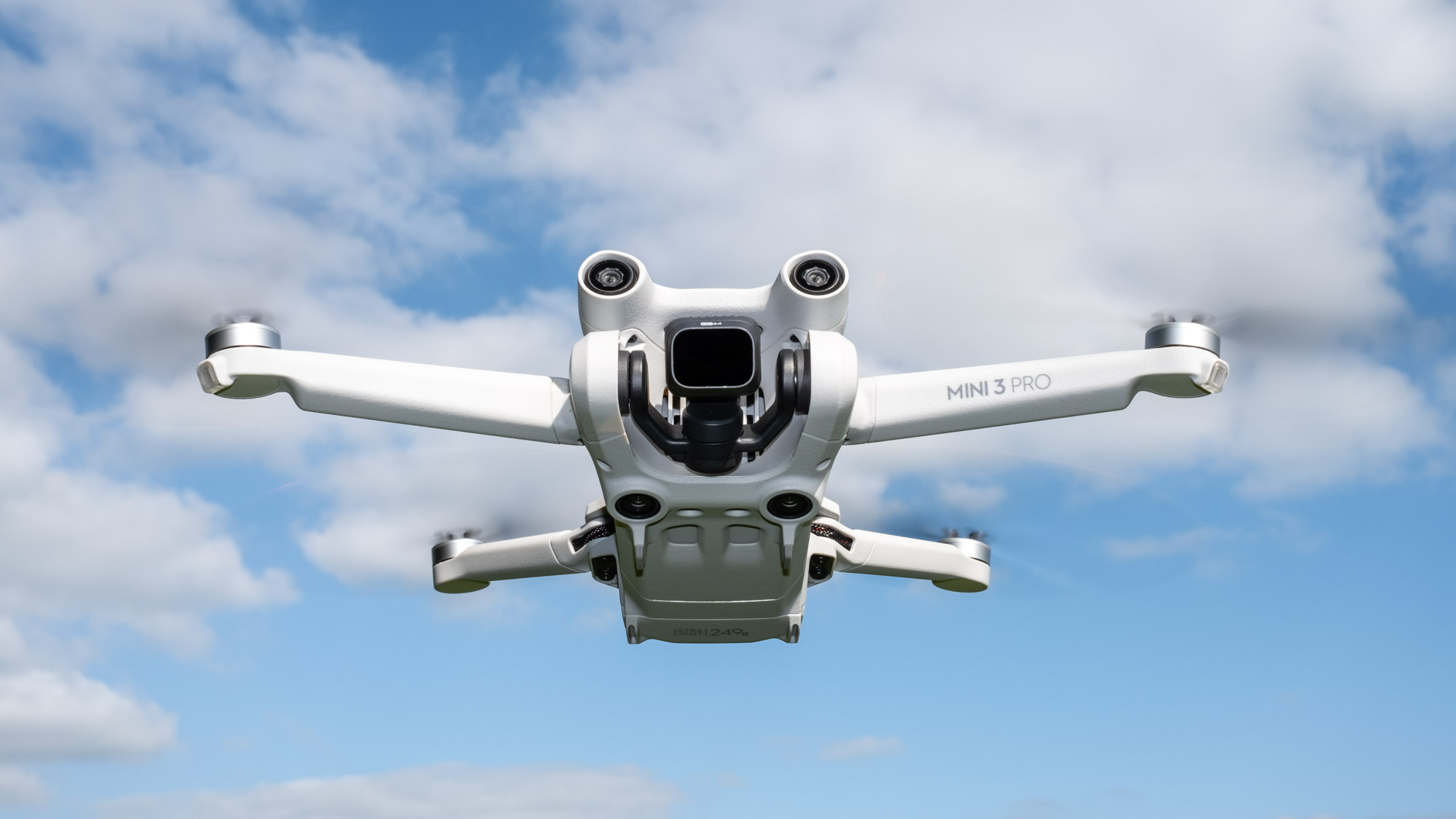Your DJI drone might soon be banned in the US – and yes, this news is just as bad as it sounds
A ban passes the US House

Sign up for breaking news, reviews, opinion, top tech deals, and more.
You are now subscribed
Your newsletter sign-up was successful
Drone maker DJI may soon find its drones banned in one of its biggest markets – the US. A drone ban bill that's been making its way through the halls of US Congress (yes, conjuring mental images of a DJI FPV drone flight) for more than a year, the Countering CCP Drones Act, passed in the full House of Representatives last week and is now set to make its way to the US Senate, and if it's passed there it could be a short flight to US President Joe Biden's desk.
The Biden administration hasn't said much about the bill, but based on how quickly the administration signed a bill that included a US demand for a sale of TikTok from its Chinese parent company (or face a ban), the outlook for DJI drones is cloudy, at best. (If the ban does come into effect you'll want to check out our list of the best alternatives to DJI's drones.)
The backdrop here is ostensibly who owns and builds those drones. DJI is a Chinese company, and US concerns of Chinese Communist Party (CCP) spying and data scrapping of US citizens is at an all-time high. The US government now considers any Chinese-built technology in US hands a threat.
There's also the issue of competition, or lack thereof in the US drone market. Most studies put DJI US drone market share at a high-flying 70%. Legislators want to open up the US market to US drone companies. Not, apparently, by building better drones but by clearing a flight plan for potentially more mediocre US-built drone products.
Too good to handle

How did DJI swallow up so much of the market? By building better drones. I've been testing and flying DJI drones for almost a decade, and they consistently offer the best combination of flying capabilities and software control.
It was the first consumer-grade drone company (it also has a significant professional line) to build foldable and, ultimately, pocket-sized drones. These flyers are light, durable, fast, and shockingly easy to fly, even for the novice. That last part is mostly due to the intelligence built into each drone.
DJI drones feature sensors that tell it where the ground is and, depending on the model, obstacles in front and behind it. The drones – better described as flying robots – know their elevation and location but can also perform multiple canned tricks. Essentially, you can have as much or as little control as you want of the flight plan. And if you want to stop flying, the remotes always have a handy "home" button that safely returns the drone home.
Safety has always been a chief concern of DJI. The drones won't fly into people, and if you were to grab one mid-flight, it would shut down. The company has also long advised against flying in populated areas or around buildings and monuments. Prosumer flyers typically sign up for free Federal Aviation Administration (FAA) drone licenses, which require you to put an ID number in your drone. If someone finds your drone on their deck, they'll be able to trace it back to you.
Sign up for breaking news, reviews, opinion, top tech deals, and more.
None of this matters to the congresspeople who are trying to pass into law this bit of language:
"This bill requires the inclusion of telecommunications and video surveillance equipment or services produced or provided by Shenzhen Da-Jiang Innovations Sciences and Technologies Company Limited (a Chinese drone maker commonly known as DJI Technologies) on a list of communications equipment or services determined by the Federal Communications Commission (FCC) to pose an unacceptable risk to U.S. national security."
Undefined risk
In much the same way that no one has yet to definitively prove how TikTok is stealing our data and putting us at risk, I can find no proof that DJI drones are putting the US at risk.
It's also interesting that bill sponsor Rep. Elise Stefanik targets the Federal Communications Commission (FCC) instead of the regulatory body responsible for drone operation in the US, the FAA. My guess is that it's easier to append some existing FCC language that targets the transfer of information between the drone and the cloud (a possible access point for the CCP) as opposed to asking the FAA to look at DJI drones on the whole and assess their impact on US privacy. It's likely the FAA has already assessed that DJI drones are safe for US citizens to fly.
The problem here is that our global market is, in a way, failing US efforts to keep pace. Labor remains cheaper outside the US, and other countries can often build high-tech products more economically. I would argue though, that DJI is not building cheap products.
In some ways, DJI reminds me of Apple. It's looked around at the burgeoning consumer drone market and generally set a higher bar with controls, motors, gimbals, cameras, battery life, and design. Its drones aren't sleek like Apple products, but DJI does have its own design language, and you know a DJI Mavic when you see one.
When I visited DJI's first US flagship store, located in midtown Manhattan, I saw a wide range of products. Some, like the DJI Mini 4K cost just $299 (with remote) but a Mavic Pro Fly More package costs over $1,000 (Pro models are more expensive). The company also makes hand-held cameras with tiny gimbals and wearable microphones, both popular with the social media set. Will lawmakers try to ban those, as well? Probably.
No better choices
My frustration level with a US government that's sliding Chinese technology companies from safe and acceptable to dangerous and bannable like so many beads on an abacus is at an all-time high.
It continues to act capriciously, with little input from US citizens who are actually using these technologies. DJI drones remain the best in the business, and I have no idea what the CCP might do with my flight plan over a crevasse in upstate NY or Jones Beach. I'm not sure I care. It's not actionable information. Most US social media companies have far more information on me and have shown less care with it than foreign entities.
If DJI is banned – not yet a certainty – I'm not sure what will fill the gap. There is no US drone company with as much name recognition. To be honest, most drone startup companies' drones pale in comparison to DJI's published flyers. The six top products in our best drones list are all DJI models.
I have little doubt that this flight is well past lift-off and may land where I hope it won't. I'm not sure what DJI could do at this time to change US lawmakers and Biden's minds, especially since none of them seem to be listening to Chinese-based companies.
The global market is increasingly becoming a memory, flying away this time on the high-speed rotors of my favorite drone manufacturer.
You might also like

A 38-year industry veteran and award-winning journalist, Lance has covered technology since PCs were the size of suitcases and “on line” meant “waiting.” He’s a former Lifewire Editor-in-Chief, Mashable Editor-in-Chief, and, before that, Editor in Chief of PCMag.com and Senior Vice President of Content for Ziff Davis, Inc. He also wrote a popular, weekly tech column for Medium called The Upgrade.
Lance Ulanoff makes frequent appearances on national, international, and local news programs including Live with Kelly and Mark, the Today Show, Good Morning America, CNBC, CNN, and the BBC.

